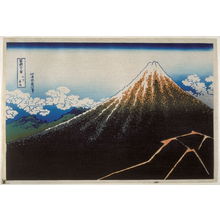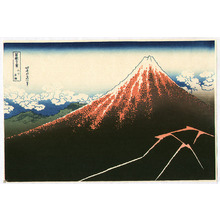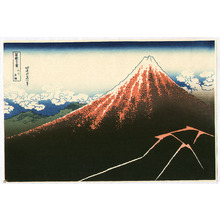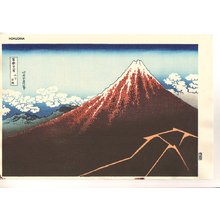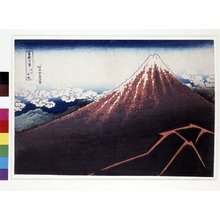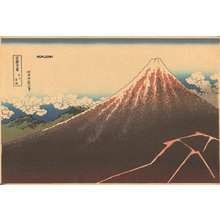葛飾北斎による浮世絵「Thunderstorm Beneath the Summit」
作者:葛飾北斎
作品名:Thunderstorm Beneath the Summit
制作年:c. 1830 - 1834
詳細:詳細情報...
情報源:ホノルル美術館
浮世絵(全 5,476 件)を表示...
説明:
Thunderstorm Beneath the Summit represents one of the few perfect compositions in the Mount Fuji series. Together with Under the Wave Off Kanagawa (cat. 6) and Mount Fuji at Dawn (cat. 7), it forms a trio of masterpieces. These images symbolically express the power of nature in simple designs; by doing so, they make us contemplate the relationship of man to the natural world. The print depicts Mount Fuji in its simplest form. Basically similar in design to Mount Fuji at Dawn, the mountain’s volcanic cone rises starkly, an undulating line describing its left flank. The background consists only of blue sky and ranks of clouds rising from behind the mountain at the midpoint of both its flanks. Nothing in this image foretells the variable weather at higher altitudes. Here we observe that the air around the slopes below the summit has darkened where lightning flashes in zigzag patterns, and we imagine the roll of thunder. Unaffected, Fuji stands in unbreachable serenity. Masterpieces like this one profoundly influence Western artists, particularly the Impressionists of the second half of the nineteenth century. Such works came to be regarded as containing the essence of Japan. (The Asian Art Museum of San Francisco, HOKUSAI AND HIROSHIGE – Great Japanese Prints from the James A. Michener Collection, Honolulu Academy of Arts: The Asian Art Museum of San Francisco, 1998 Page 57. Cat. 8 ) ********************* Like Red Fuji, this view of the mountain likely comes from Hokusai’s imagination. The volcano occupies the majority of the picture, and there is a marked contrast between the upper and lower portions of the print, emphasizing Mount Fuji’s height. The volcano’s snowcapped peak rises into a clear sky over low clouds (the shapes of which are derived from Western models), while at its feet a storm breaks. The thunderstorm indicates the beginning of a sudden shower, symbolizing the promise of an abundant harvest. The use of vivid colors and simplified two-dimensional design in this print was considered sensational by many European and American artists, particularly the Impressionists, who turned to Japanese art in the nineteenth century as a means to break free from traditional artistic conventions. Together with Great Wave and Red Fuji, this is considered one of the finest prints in the entire series. Its similar composition to Red Fuji emphasizes the loftiness of the mountain and its ever-changing appearance, while the ominous thunderstorm references the powerful forces of nature that also characterize Great Wave. “Hokusai’s Summit: Thirty-six Views of Mount Fuji” (09/24/2009-01/06/2010) ******************************
類似の浮世絵
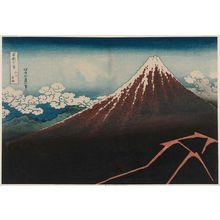
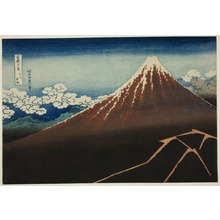
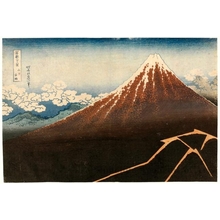
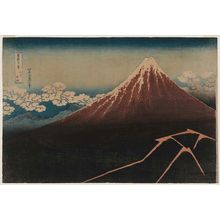
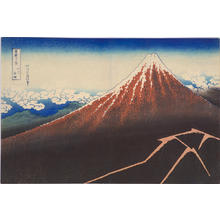
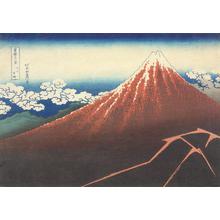
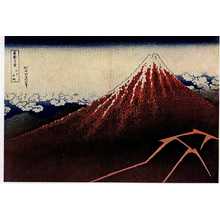

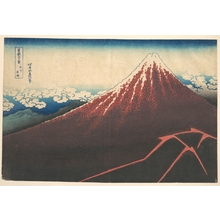
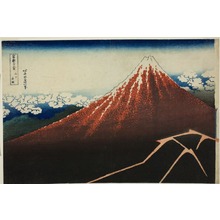
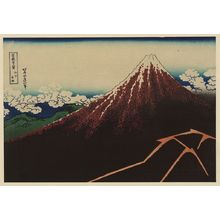
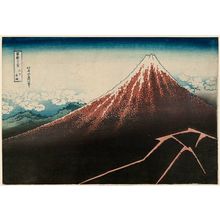
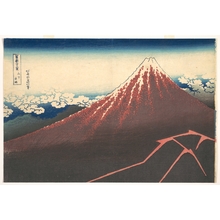
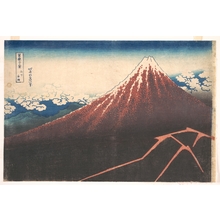
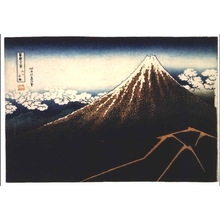
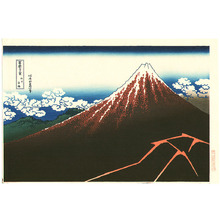
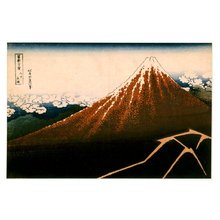
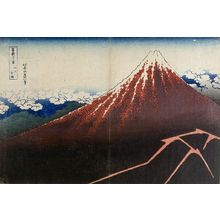
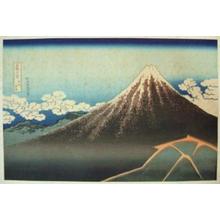
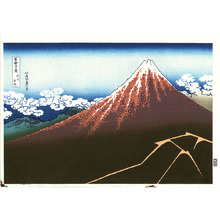
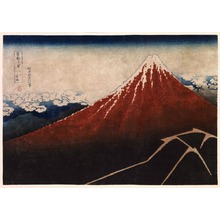
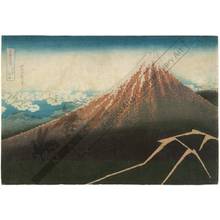
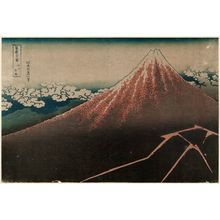
![[Sanka hakū] Katsushika Hokusai, 葛飾北斎 (Katsushika Hokusai)による浮世絵「[Sanka hakū]」](https://data.ukiyo-e.org/loc/thumbs/02475v.jpg)
